Graham Reid | | 7 min read
Blue on Blue, by Bobby Vinton
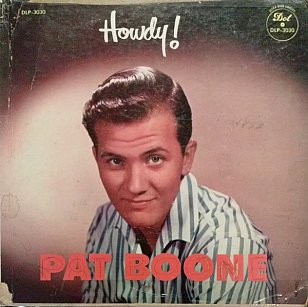
Between the deaths of Buddy Holly, Ritchie Valens (the first Hispanic rock'n'roll star) and the Big Bopper in February 1959, and the emergence of the Beatles four years later, popular music was adrift.
Certainly there were surf bands and Motown, Phil Spector, doo-wop singers and girl groups, as well as marginal movements like gravedigger rock, rockabilly rebels and greasers, death ballads and so on.
But there was no centre.
When Holly's plane went down Bill Haley was already yesterday's man and Elvis was in the army in distant Germany. In short order Chuck Berry was in jail, Little Richard abandoned sinful rock'n'roll and went back to the church, Jerry Lee Lewis was marginalised because of the marriage to his 13-year old cousin, and the payola scandal encompassed radio DJs.
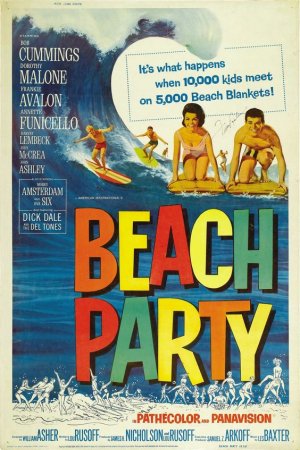 Alan
Freed – whose Moondog radio show and rock'n'roll concerts had
galvanised a generation – was hounded out of radio because of the
pay-for-play scandal.
Alan
Freed – whose Moondog radio show and rock'n'roll concerts had
galvanised a generation – was hounded out of radio because of the
pay-for-play scandal.
And while Fats Domino just smiled away, the hits had stopped coming and great songs like Walking to New Orleans weren't rock'n'roll.
The exciting and energised rock'n'roll of just two years previous dissipated and into the vacuum came unscrupulous managers, business people and promoters who saw easy cash waiting to be plucked out of teenagers' pocket money.
And so emerged one of the earliest and most exploitive phenomena in pop culture: the marketing of good looking, groomed and often barely talented young male singers who began to dominate the pop charts, radio, the steadily emerging medium of television and fast turnaround movies aimed at teenagers.
It was the time of films like the Gidget series (the first in '59 with Sandra Dee and James Darren) and Where the Boys Are ('60) with Connie Francis. Even into the mid Sixties there was vacuous fare like Beach Blanket Bingo with "the kids" dancing on the beach and clean-cut stars like Frankie Avalon and Annette Funicello.
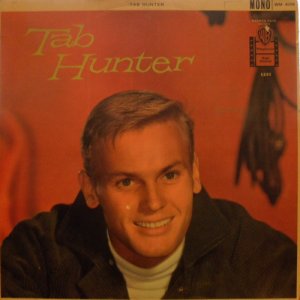 In a
sense the way had already been paved by the likes of Johnnie Ray in
the early Fifties who wept his way through songs like Cry and The
Little Cloud That Cried, thus earning the nickname The Nabob of Sob
and who could open the aqueducts behind the eyes of teenage girls.
In a
sense the way had already been paved by the likes of Johnnie Ray in
the early Fifties who wept his way through songs like Cry and The
Little Cloud That Cried, thus earning the nickname The Nabob of Sob
and who could open the aqueducts behind the eyes of teenage girls.
And later Pat Boone (real name Charles Boone) who diluted the rock'n'roll songs of Fats Domino and Little Richard, and buffed movie stars like Tab Hunter (Arthur Kelm) who also had a brief career on the pop charts.
It should come as no surprise that Hunter's first hit in '57 Young Love would be covered by Donny Osmond two decades later.
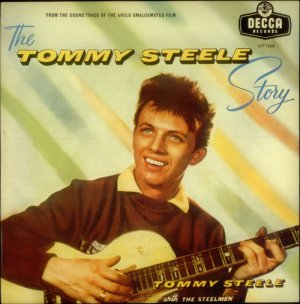 Many
of the male pop stars of this netherworld – which existed between
the songwriting factories and the pages of teen magazines with the
music being almost incidental – were manufactured and disposable.
Many
of the male pop stars of this netherworld – which existed between
the songwriting factories and the pages of teen magazines with the
music being almost incidental – were manufactured and disposable.
In Britain the impresario Larry Parnes would pick good looking young men, rename them, get them to record a single or two and send them on tour. If they lasted eight months they were the rare ones.
If they could sing passably they were even more rare.
His earliest success had come with Tommy Steele (born Thomas Hicks, adopting Steele himself before signing with Parnes) who was the bridge between skiffle and early rock'n'roll.
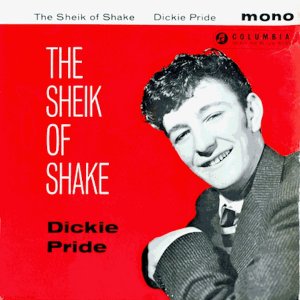 When Parnes spotted the success of Steele and the young demographic prepared to spend money, he was on his way with many other young hopefuls.
When Parnes spotted the success of Steele and the young demographic prepared to spend money, he was on his way with many other young hopefuls.
Among Parnes' caravan of stars were the long forgotten and forgettable Dickie Pride (Richard Kneller), Vince Eager (Roy Taylor), Duffy Power (Ray Howard who had better success as blues singer later in life) and Johnny Gentle (John Askew) from Liverpool . . . who did a short tour in Scotland with the young Beatles – then the Silver Beetles – as his backing band.
(Ironically the Beatles' manager Brian Epstein -- who you think would have known better -- tried to do a Parnes on a young Liverpudlian singer Tommy Quigley who he renamed Tommy Quickly and tried everything to break him into the charts. He failed miserably.)
Among the rare stayers from Parnes' roster were Marty Wilde (Reg Smith), Georgie Fame (Clive Powell) and the genuine rock'n'roller Billy Fury who died broke.
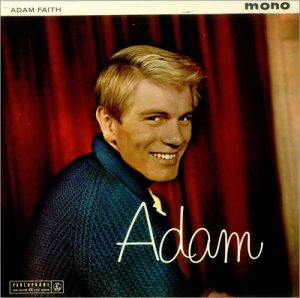 But
for every Adam Faith (Terry Nelhams-Wright) who went on to success
beyond pop there was always a Lance Fortune (Chris Morris) who became
less than a footnote in pop history.
But
for every Adam Faith (Terry Nelhams-Wright) who went on to success
beyond pop there was always a Lance Fortune (Chris Morris) who became
less than a footnote in pop history.
Cliff Richard (Harry Webb) had begun his rock'n'roll career with the very creditable hit Move It in '58 and the film Expresso Bongo the following year: like the young Elvis he had some of the makings of decent post-James Dean surly screen presence.
But that wasn't him and so he then went for lightweight fare like The Young Ones and Summer Holiday.
And on the recording front almost immediately – aside from two albums of serviceable rock'n'roll covers – reverted to being a safe and uncontroversial all-round family entertainer.
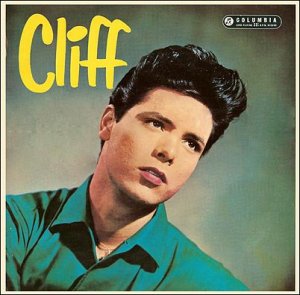 By his third album
Listen to Cliff! in '61 he was covering Blue Moon, Sentimental
Journey (a popular tune from the Forties) and Rodgers and
Hammerstein's We Kiss in a Shadow.
By his third album
Listen to Cliff! in '61 he was covering Blue Moon, Sentimental
Journey (a popular tune from the Forties) and Rodgers and
Hammerstein's We Kiss in a Shadow.
The rock'n'roll rebellion of the young Elvis, Little Richard and Chuck Berry was now in the hands of managers and their malleable young stars.
In America, everywhere were Johnnys and Frankies and Rickys, some of them not bad but most not worth a toss.
Frankie Avalon (Francis Avalone) didn't even try for the rock'n'roll cachet but was in the tradition of Italian pop balladeers and was handed featherweight material like Venus, Just Ask Your Heart and A Boy Without A Girl.
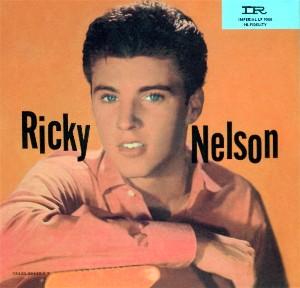
But mostly the teen idol arena was the domain of boy singers groomed to perfection. Their album covers – as shown here – are visual emblems of how generic the idiom had become.
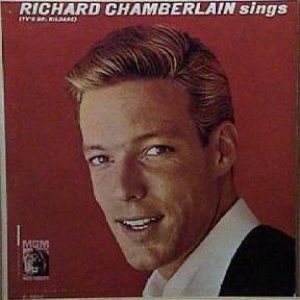 And how locked in their
period they and their music were.
And how locked in their
period they and their music were.
In the US however these young stars had greater access to the medium that would give them oxygen: television shows hosted by the likes of Milton Berle, Ed Sullivan, Steve Allen and others.
And television actors like Richard Chamberlain (Dr Kildare) made albums and got onto the charts . . . in his case with the couldn't-really-miss lyric version to that series' theme tune, Three Stars Will Shine Tonight (“one for young lovers”).
Being on television might be the only reason former Mouseketeer and generically good looking Paul Petersen – who played the teenage son Jeff on the mainstream Donna Reed Show – got to record a couple of albums.
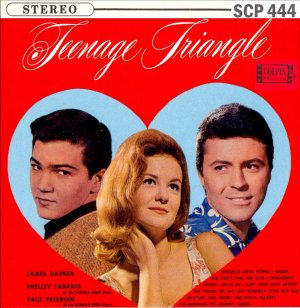 He could at least sing the songs on the show to promote them.
He could at least sing the songs on the show to promote them.
As did James Darren (James Ercolani, who was in Gidget movies) who sang Goodbye Cruel World on the show in '61 when his character, like Elvis, went off to join the army, leaving behind Donna's daughter Mary (Shelley Fabares, also a graduate of the Mickey Mouse Club and who would appear in Elvis movies).
This was how quickly rock'n'roll had devolved.
There were short-lived stars like Fabian (Fabiano Forte, an actor who had albums with titles like The Fabulous Fabian, and Young And Wonderful). Could he sing? Check the clip!
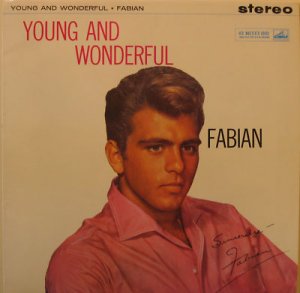 And the many Bobbys: Rydell (Robert Ridarelli, who had a high school
named after him in Grease), Vee (Robert Velline who replaced Buddy on
the tour after the crash and counted Dylan as a brief band member and
longtime fan) and Vinton (Stanley Vinton, soft pop hits like Roses
Are Red and Blue Velvet).
And the many Bobbys: Rydell (Robert Ridarelli, who had a high school
named after him in Grease), Vee (Robert Velline who replaced Buddy on
the tour after the crash and counted Dylan as a brief band member and
longtime fan) and Vinton (Stanley Vinton, soft pop hits like Roses
Are Red and Blue Velvet).
And many more.
There was Eden Kane (Richard Sarsted whose big hit was Boys Cry and is the brother of the late Peter), and the great Del Shannon (Charles Westover) and Dion DiMucci, the latter two surviving their early encounters with teenage fame to become important figures in pop culture.
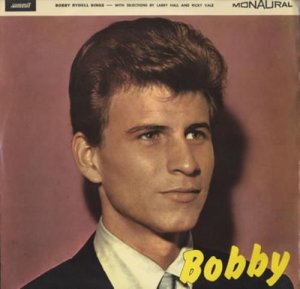 So
some of these good looking young men managed to survive their era and
even continue recording, although many more just took their looks to
television shows and lesser movies.
So
some of these good looking young men managed to survive their era and
even continue recording, although many more just took their looks to
television shows and lesser movies.
Some simply faded away – a few in a fog of alcohol, others battling their homosexuality when they'd been tailored for young girls – and others kept waiting for the career revival which wouldn't come.
Every generation throws a hero up the pop charts, said Paul Simon. And a new batch of pretty boys too.
Even as their audience was diminishing -- the girls grew up, got jobs, married, moved to the suburbs; a lucky few young enough still for the thrill of the Beatles -- their stars were descending and these young men watched as their careers fizzled.
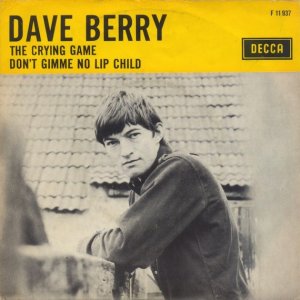 New heartthrobs like Dave Berry replaced them.
New heartthrobs like Dave Berry replaced them.
And then would come the Monkees, Bobby Sherman – who made the transition from the Shindig! pop show on television into recording star – and David Cassidy, David Essex, Marc Bolan, various Osmonds and Jacksons . . .
Looks fade and, as with all of us, those pretty boys who filled the gap between Buddy and the Beatles aged and . . .
But there they are even now, like insects in amber, forever young on their album covers.
Elsewhere is slightly embarrassed to admit it has quite a number of these records on vinyl. But then again, we also have these which are probably worse.

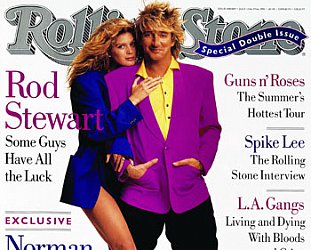

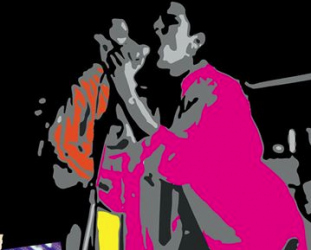
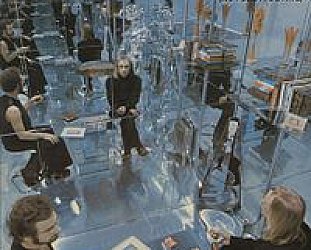
post a comment